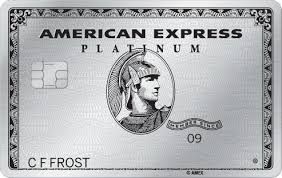- myFICO® Forums
- FICO Scoring and Other Credit Topics
- Personal Finance
- Re: Roth IRA or Traditional IRA
- Subscribe to RSS Feed
- Mark Topic as New
- Mark Topic as Read
- Float this Topic for Current User
- Bookmark
- Subscribe
- Mute
- Printer Friendly Page
Roth IRA or Traditional IRA
Is your credit card giving you the perks you want?
Browse credit cards from a variety of issuers to see if there's a better card for you.
- Mark as New
- Bookmark
- Subscribe
- Mute
- Subscribe to RSS Feed
- Permalink
- Report Inappropriate Content
Re: Roth IRA or Traditional IRA
- Mark as New
- Bookmark
- Subscribe
- Mute
- Subscribe to RSS Feed
- Permalink
- Report Inappropriate Content
Re: Roth IRA or Traditional IRA
We ended up focusing heavily on Traditional IRA primarily because doing so brought us within the bracket to gain the maximum in Savers' Tax Credit.
Also this post by Go Curry Cracker helped convince me. My main takeaway was that the money you invest in a Traditiona IRA instead of paying in taxes in a Roth IRA, earns a lot more money for you while it's percolating in investments. So when it does come time to pay taxes on it, you have more even after taxes are paid, because there was more money working in your favor the whole time.
Of course, there are more factors beyond that, but that was th eone that did it for me.
If ever we were earning little enough to be in a 0% tax bracket, I'd definitely do Roth. I also expect to do a Roth conversion ladder someday. Unless/until then, I'm going with Traditional.
- Mark as New
- Bookmark
- Subscribe
- Mute
- Subscribe to RSS Feed
- Permalink
- Report Inappropriate Content
Re: Roth IRA or Traditional IRA
@Anonymous wrote:Also this post by Go Curry Cracker helped convince me. My main takeaway was that the money you invest in a Traditiona IRA instead of paying in taxes in a Roth IRA, earns a lot more money for you while it's percolating in investments. So when it does come time to pay taxes on it, you have more even after taxes are paid, because there was more money working in your favor the whole time.
True, but given enough tax-free growth, the roth could surpass the traditional IRA (after taxes are paid on the growth) and the author conveniently ignores that. That, along with RMD's, really makes it a case-by-case decision. Which is really why there is no right or wrong answer as a whole.












- Mark as New
- Bookmark
- Subscribe
- Mute
- Subscribe to RSS Feed
- Permalink
- Report Inappropriate Content
Re: Roth IRA or Traditional IRA
@OmarR wrote:
@Anonymous wrote:Also this post by Go Curry Cracker helped convince me. My main takeaway was that the money you invest in a Traditiona IRA instead of paying in taxes in a Roth IRA, earns a lot more money for you while it's percolating in investments. So when it does come time to pay taxes on it, you have more even after taxes are paid, because there was more money working in your favor the whole time.
True, but given enough tax-free growth, the roth could surpass the traditional IRA (after taxes are paid on the growth) and the author conveniently ignores that. That, along with RMD's, really makes it a case-by-case decision. Which is really why there is no right or wrong answer as a whole.
It also ignores the case where someone can contribute the same amount whether they pay taxes on it or not. If someone is contributing 10% traditional vs. 7% Roth, the Curry case can be made, but if one is going to contribute 10% either way, the argument falls apart.
- Mark as New
- Bookmark
- Subscribe
- Mute
- Subscribe to RSS Feed
- Permalink
- Report Inappropriate Content
Re: Roth IRA or Traditional IRA
Traditional IRA have a huge pitfall --the dreaded RMD that forces you to distribute out as income 3.7+% of your IRA each year after you reach 70-1/2, whether you need it or not.
That income is taxable as ordinary income just when retirees are also taking SS and have no household exemptions, mortgages are paid off, kids grown... Then the additional RMD income will likely be enough to trigger taxes on up to 85% of your SS income. Some couple who religiously saved in deerred accounts end up with higher tax burdens once retired than when they had earned income because of RMDs.
However, you're never forced to take a distribution from Roths.
It might be best to split your contributions into both an IRA and ROTH.
By splitting, you'll make lower contributions to Roth =lower taxes on contributions NOW,
and you'll have a lower future IRA balance =lower taxes on RMD in the FUTURE.
- Mark as New
- Bookmark
- Subscribe
- Mute
- Subscribe to RSS Feed
- Permalink
- Report Inappropriate Content
Re: Roth IRA or Traditional IRA
@Anonymous wrote:Traditional IRA have a huge pitfall --the dreaded RMD that forces you to distribute out as income 3.7+% of your IRA each year after you reach 70-1/2, whether you need it or not.
That income is taxable as ordinary income just when retirees are also taking SS and have no household exemptions, mortgages are paid off, kids grown... Then the additional RMD income will likely be enough to trigger taxes on up to 85% of your SS income. Some couple who religiously saved in deerred accounts end up with higher tax burdens once retired than when they had earned income because of RMDs.
However, you're never forced to take a distribution from Roths.
It might be best to split your contributions into both an IRA and ROTH.
By splitting, you'll make lower contributions to Roth =lower taxes on contributions NOW,
and you'll have a lower future IRA balance =lower taxes on RMD in the FUTURE.
In addition to Social Security taxation RMD's may increase the floor for deducting medical expenses.
- Mark as New
- Bookmark
- Subscribe
- Mute
- Subscribe to RSS Feed
- Permalink
- Report Inappropriate Content
Re: Roth IRA or Traditional IRA
Both true regarding RMD's, but while I don't have the bulk of my assets in my 401K (or any other tax advantaged account I got financially righteous later than I should've) but I'm going to be rolling over what I do have to a Roth in some $0 income years which I will have.
It's not something that can't be addressed.





















- Mark as New
- Bookmark
- Subscribe
- Mute
- Subscribe to RSS Feed
- Permalink
- Report Inappropriate Content
Re: Roth IRA or Traditional IRA
I typically suggest to clients that they start with Roth and when the means are available diversify with a traditional. No one can predict or even speculate taxes 2 years from now let alone 20 to 30. Either way your headed in the right direction just by doing the research.

















“The man who says he can, and the man who says he can not… Are both correct.”
- Mark as New
- Bookmark
- Subscribe
- Mute
- Subscribe to RSS Feed
- Permalink
- Report Inappropriate Content
Re: Roth IRA or Traditional IRA
@Anonymous wrote:Traditional IRA have a huge pitfall --the dreaded RMD that forces you to distribute out as income 3.7+% of your IRA each year after you reach 70-1/2, whether you need it or not.
That income is taxable as ordinary income just when retirees are also taking SS and have no household exemptions, mortgages are paid off, kids grown... Then the additional RMD income will likely be enough to trigger taxes on up to 85% of your SS income. Some couple who religiously saved in deerred accounts end up with higher tax burdens once retired than when they had earned income because of RMDs.
However, you're never forced to take a distribution from Roths.
It might be best to split your contributions into both an IRA and ROTH.
By splitting, you'll make lower contributions to Roth =lower taxes on contributions NOW,
and you'll have a lower future IRA balance =lower taxes on RMD in the FUTURE.
Not that it is a major change to the argument, but starting this year, RMDs begin at 72.
As someone now at retirement with a large trad IRA and a tiny Roth one, I wish I had done more Roth! Depending on your level of needed "income" taking it from the Traditional can also have serious impacts on Medicare payments (B and D)
- Mark as New
- Bookmark
- Subscribe
- Mute
- Subscribe to RSS Feed
- Permalink
- Report Inappropriate Content
Re: Roth IRA or Traditional IRA
@longtimelurker wrote:Not that it is a major change to the argument, but starting this year, RMDs begin at 72.
As someone now at retirement with a large trad IRA and a tiny Roth one, I wish I had done more Roth! Depending on your level of needed "income" taking it from the Traditional can also have serious impacts on Medicare payments (B and D)
What sort of impacts? Inquiring minds want to know...
I'm hoping to squirrel away around $500,000 into my HSA before I retire so that it will carry me through post-employment insurance (as that amount should allow me to withdraw $25,000/year pretty much forever); any unforeseen change in my cost estimates may necessitate my setting more aside in non-HSA funds to cover things like Medicare.